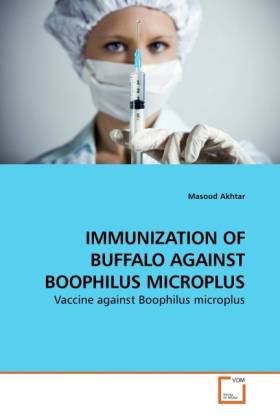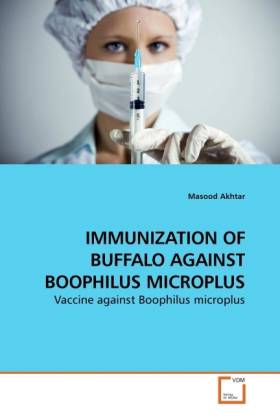
- Afhalen na 1 uur in een winkel met voorraad
- Gratis thuislevering in België vanaf € 30
- Ruim aanbod met 7 miljoen producten
- Afhalen na 1 uur in een winkel met voorraad
- Gratis thuislevering in België vanaf € 30
- Ruim aanbod met 7 miljoen producten
Zoeken
IMMUNIZATION OF BUFFALO AGAINST BOOPHILUS MICROPLUS
Vaccine against Boophilus microplus
Masood Akhtar
Paperback | Engels
€ 58,45
+ 116 punten
Omschrijving
Ticks and tick borne diseases cause many problems to man and domestic animals worldwide. These problems are most closely associated with domestic animals especially cattle, buffalo and sheep in tropical and subtropical regions of the world. It remains true that the major problems associated with ticks are their effect on domestic animals and the most important tick in this context is the cattle tick Boophilus (B.) microplus. Therefore, B. microplus, has been the object of considerable interest throughout the world. The primary objective of these investigations was to develop an effective vaccine against B. microplus. For this purpose, it was deemed necessary to establish optimum conditions for the laboratory rearing of ticks, in vitro propagation of midgut cells; and determination of immunogenic and protective effects of whole ticks, midgut, midgut cell culture, protein and lipopolysaccharides subunit vaccines against B. microplus. The results of the current study confirm the role of carbohydrates as protective antigen or as a factor for specificity of these antigen.
Specificaties
Betrokkenen
- Auteur(s):
- Uitgeverij:
Inhoud
- Aantal bladzijden:
- 124
- Taal:
- Engels
Eigenschappen
- Productcode (EAN):
- 9783639249361
- Uitvoering:
- Paperback

Alleen bij Standaard Boekhandel
+ 116 punten op je klantenkaart van Standaard Boekhandel
Beoordelingen
We publiceren alleen reviews die voldoen aan de voorwaarden voor reviews. Bekijk onze voorwaarden voor reviews.







